Good philanthropy needs government featuring Laura Arnold and Van Jones
Transcript
[Why good philanthropy needs government. Laura Arnold, co-chair, Arnold Ventures. A Latina woman with short bouncy black hair, wearing a black dress with gold accents and red lipstick. Van Jones, CEO, Reform Alliance. Host of “The Redemption Project”, and “The Van Jones Show”. A Black man with glasses wearing a navy blazer and navy polka dot shirt with jeans and black boots.]
ANNOUNCER: Please welcome Laura Arnold and Van Jones.
[applause]
VAN JONES: Laura Arnold, you have become one of the most impactful philanthropists— Arnold Ventures. You’ve decided to invest in policy. Why is policy the focus of your work?
LAURA ARNOLD: Policy change is the lever that is going to lead to sustainable change. The reason we became a policy foundation was that we very quickly realized that, you know, it’s not about education. You know, education isn’t about the schools. It’s about—it’s about poverty. It’s about healthcare. It’s about homelessness. It’s about social justice. It’s about opportunity. You know, it’s about all of these elements of the social fabric that are woven together to create the reality of what we live. And, in order to change that, in a sustainable way, you have to attack the systems that are creating the injustices that you see, that are creating the dysfunction that you see. And, and in my view, there’s no better way to do that than by getting in there and, first of all, discovering what it is that’s broken—understanding what elements you can fix and what solutions you think are superior alternatives to what’s happening, and getting those implemented and having the government adopt those systems as better alternatives.
VAN JONES: Yeah. Well, I mean, it is true that no matter what you do, the government always has more money than the foundations.
LAURA ARNOLD: That’s right.
VAN JONES: So if you can leverage it, you can make a lot more change. But what you just described is hard.
LAURA ARNOLD: Yeah!
VAN JONES: You’ve said, “Oh, we’ll do this and this and this”— that’s really really hard.
LAURA ARNOLD: That’s right!
VAN JONES: And you’ve also decided to do it in one of the hardest areas—criminal justice reform. So, you make the decision, first you’re going to do policy. You’re going to try to move the government, and then in this tough area. Why did you focus on criminal justice? Why is that so important to you?
LAURA ARNOLD: I’m a lawyer by training. So, uh, in addition to education, when we started looking at broken systems, which is what we’re attracted to—you know, we both come—both my husband and I come from a private-sector background. So we, so we look for sort of, you know, inefficient markets, broken systems—things that, uh—where we believe that philanthropy can create a better alternative. And you don’t have to look very far to understand that, you know, that criminal justice is a deeply broken system from, really, every respect. And I need not tell the audience every way in which it’s broken, because many of us, uh, in the audience live it, work in this space, and deeply understand and are fighting every day to right those injustices. But whether or not you take a civil rights perspective, a civil liberties perspective, to the issue of criminal justice or whether you look at it from a cost-benefit lens—understanding the massive, massive waste of resources that, um, that we see in our criminal justice system, you see that it’s so—it’s a system that is senselessly broken. So, so we started about 12 years ago, looking into what aspects of the system do we think that we can change? What aspects do we think are not only broken but are able to be singled out, such that we can really make a short-term impact that could evolve into something that’s, um, that is long-lasting? And that’s how we started looking at pretrial work and bail reform and um, and that’s how we began that journey.
VAN JONES: The thing that’s the most striking about you, besides your incredibly rigorous and really singular approach, frankly, in the area of criminal justice, is you and your husband. Why are you doing this?
LAURA ARNOLD: You know, I think, this sort of constant feeling of just being blessed by the resources that we have, by the opportunities that have been given to us, and by the platform that we have to really create good. And not just, you know, not just for the world, which is incredibly, you know, meaningful, but also, you know, for us as people, to set the right example for our children, to, you know, to really leave the world in a better place than how we found it. In our case, you know, we don’t have a business. Uh, you know, we don’t have a brand to protect. We can do—we can face whatever criticism we want. It’s a position of luxury, where you can put yourself out there and have the hard conversation, engage in the tough fight, and do what you think is right, because it’s right, without having to counterbalance it, you know, with any—you know, with your personal interests, with your financial interests, with your, you know, whatever else. And so we think that that’s our market advantage and that’s what drives us to do what we do.
VAN JONES: It’s great. It’s great what you do. It’s great the way that you do it. You challenge this field. You’ve transformed this field. You’re not going to have a bunch of Arnold Centers, but you’re going to have a whole lot of people walking around free because of what you’ve done, and we appreciate it.
LAURA ARNOLD: Well, thank you. Thank you. Thank you.
[applause]
[New gospel of wealth. What does #GenerosityToJustice look like to you? Ford Foundation dot org forward slash new gospel.]
Accessibility Statement
- All videos produced by the Ford Foundation since 2020 include captions and downloadable transcripts. For videos where visuals require additional understanding, we offer audio-described versions.
- We are continuing to make videos produced prior to 2020 accessible.
- Videos from third-party sources (those not produced by the Ford Foundation) may not have captions, accessible transcripts, or audio descriptions.
- To improve accessibility beyond our site, we’ve created a free video accessibility WordPress plug-in.
Laura Arnold, co-chair of Arnold Ventures, explains why philanthropy needs good policy to scale solutions, and where change is most needed today. Moderated by Van Jones of REFORM Alliance.
“Policy changes the lever that is going to lead to sustainable change.”
– Laura Arnold
Learn more about New Gospel of Wealth
Other videos in this series
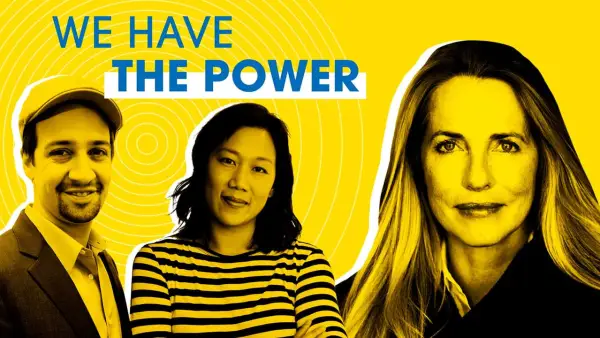
Let’s rethink giving
How can we reimagine philanthropy so that we create a future where there is justice and dignity for all? What are the root causes of the issues and how do we encourage the participation of many and not just a few?
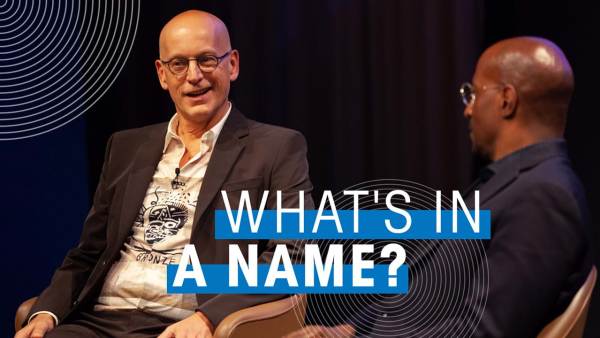
The power of a name featuring Jon Stryker and Van Jones
As a philanthropist, Jon Stryker, president of the Arcus Foundation, believes the act of naming gives power and influence to the work that is supported through his gifts. His philanthropy supports those on the frontlines of justice, providing resources and power to those who need it most.
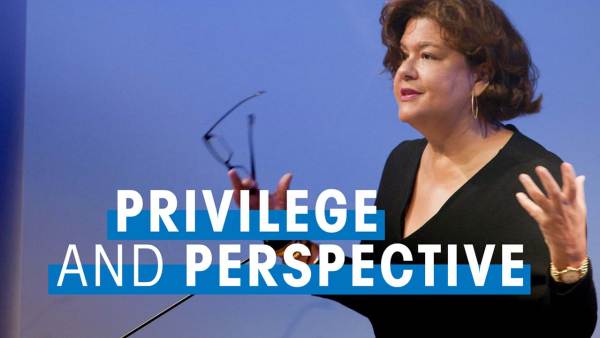
The privilege of perspective featuring Elizabeth Alexander
Elizabeth Alexander, president of the Andrew W. Mellon Foundation, on art, activism, and acknowledging adversity.
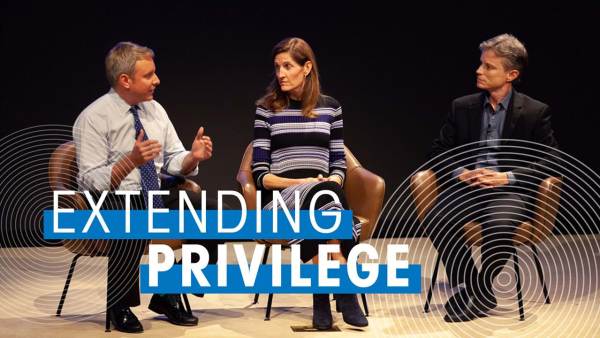
Extending privilege featuring Valerie Rockefeller and Henry Ford III
Henry Ford III, trustee of the Ford Foundation, and Valerie Rockefeller, chair of the Rockefeller Brothers Fund, discuss transforming philanthropy for the 21st century. The families have seen the value of impact investing and believe in partnerships to increase the difference that can be made.
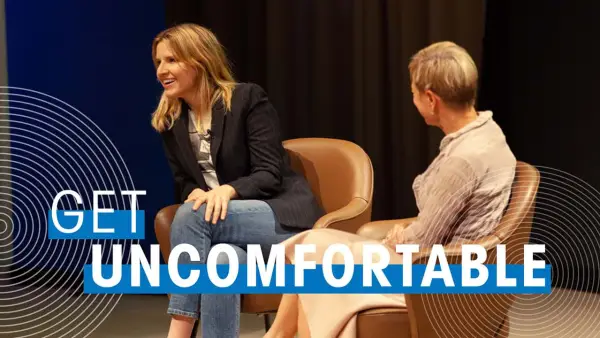
Getting proximate featuring Tara Westover and Hilary Pennington
Tara Westover, author of “Educated,” sees a disconnect between the rural and urban parts of the United States. She believes philanthropists need to be more proximate to the issues they care about, and that spending time with people who aren’t like you is key to disrupting inequality.
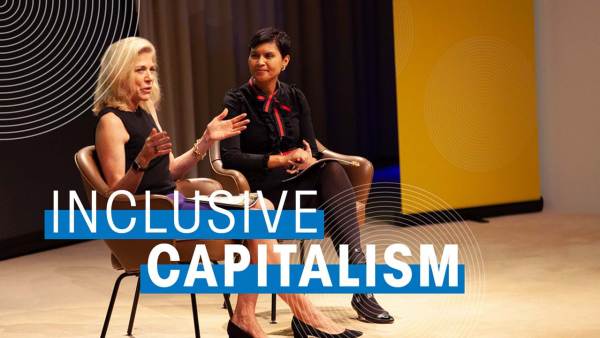
Can capitalism ever really be inclusive? featuring Lynn Forester de Rothschild and Stephanie Mehta
The top 1 percent of the United States controls 42 percent of the national wealth. Lynn Forester de Rothschild, founder of the Center for Inclusive Capitalism, explains that reimagining the economy and making it a sustainable, inclusive system that leads to strong economic growth requires reform.
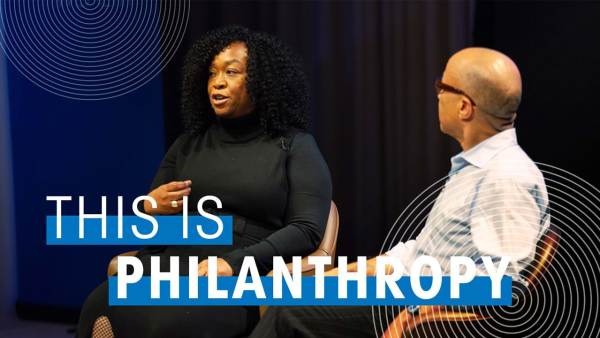
This is what a philanthropist looks like featuring Shonda Rhimes and Darren Walker
Writer and producer Shonda Rhimes has seen the power storytelling has to make change through her work, which centers marginalized people and issues. Rhimes believes philanthropy sets an example others can follow, and says supporting organizations that are already on the ground doing the work is key.
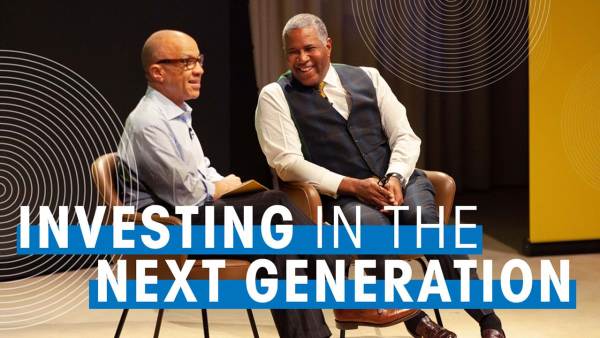
Catalyzing the potential of our time featuring Robert Smith and Darren Walker
Through philanthropy, Robert Smith, CEO of Vista Equity Partners, has alleviated the burden of student debt for a graduating class. He says private philanthropy can help address public policy challenges, such as student loan debt, and is a disruptive opportunity that liberates people to contribute to society in positive ways.
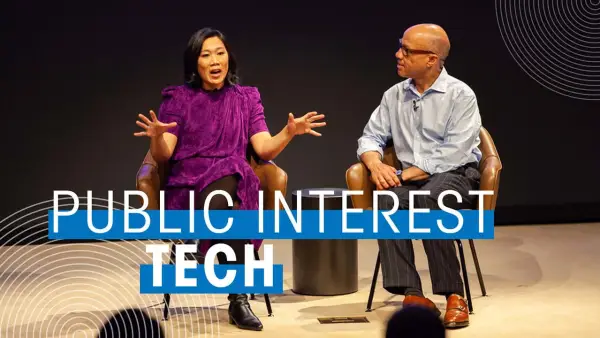
Tech funders changing philanthropy featuring Priscilla Chan & Darren Walker
The top 1 percent of the United States controls 42 percent of the national wealth. Lynn Forester de Rothschild, founder of the Center for Inclusive Capitalism, explains that reimagining the economy and making it a sustainable, inclusive system that leads to strong economic growth requires reform.
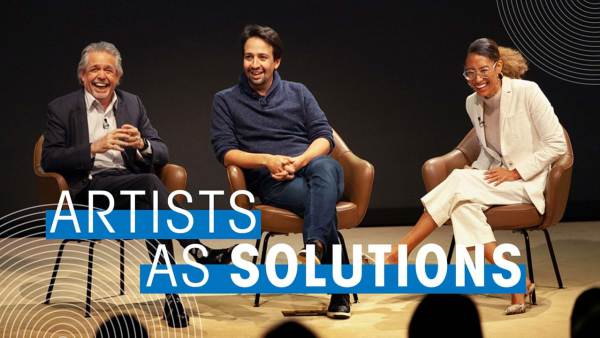
Why artists shouldn’t stay in their lane featuring Lin-Manuel Miranda, Luis Miranda Jr. and Elaine Welteroth
Composer and actor Lin-Manuel Miranda believes all art is political. He and his father, Luis A. Miranda Jr. of the MirRam Group, see the value philanthropy has to empower communities that may have been neglected, and allow them to share their stories through the arts, like Puerto Rico did after Hurricane Maria.
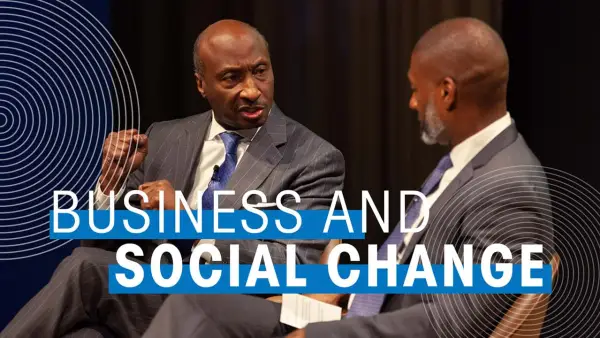
The business of justice featuring Kenneth Frazier and Charles Blow
Kenneth Frazier, CEO of Merck and Co, believes one of the greatest injustices in our society is the health disparities experienced by women of color. A zip code is more likely to determine health outcomes than genetic code. Frazier uses philanthropy to address mortality rate and wants to see more medical personnel listen to their women patients and patients of color.
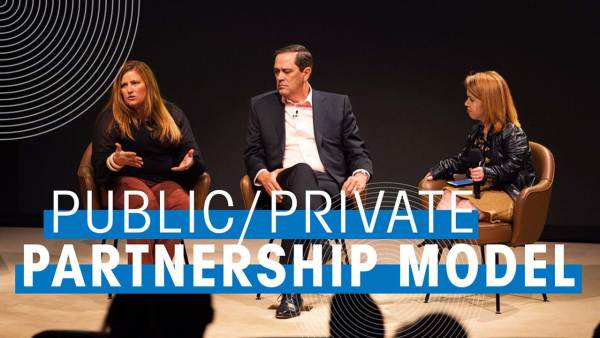
Public-private partnership: A new model for lasting impact featuring Jennifer Loving and Chuck Robbins
Jennifer Loving, CEO of Destination: Home, says a public-private partnership, like the one between her nonprofit and Cisco, headed by Chuck Robbins, can help create a model for the future of philanthropy, and tools like social bonds can help address some of the biggest crises of our time.
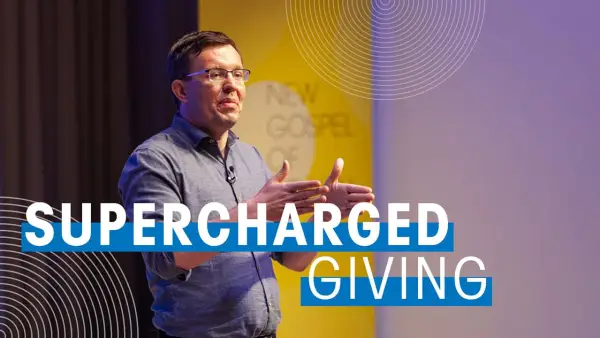
The new power of philanthropy featuring Henry Timms
CEO of Lincoln Center Henry Timms asks how philanthropy can supercharge civic engagement. Timms, who started Giving Tuesday, says trust-based philanthropy needs to shift from generosity to justice, driving more participation from more people, and encouraging meaningful ways to participate and collaborate.
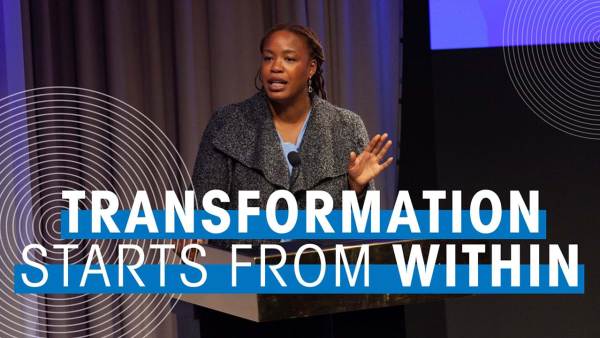
Transforming organizations from the inside featuring Heather McGhee
Heather McGhee, distinguished senior fellow at Demos, shares her experience of working to make the Demos think tank more diverse and led by people of color. Institutional racism, however slight, drives inequality, she says, so transformation needs to be a must-have and not a nice-to-have.
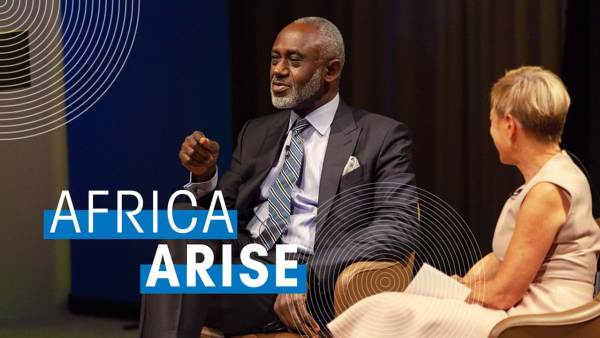
Africa, your time is now featuring Gbenga Oyebode and Hilary Pennington
Ford Foundation trustee Gbenga Oyebode has seen the value of impact investing on the African continent. He believes philanthropy should not just be giving, but investing with a social impact and an economic return. Giving is inherently part of African culture, but needs to be more strategic and collaborative.
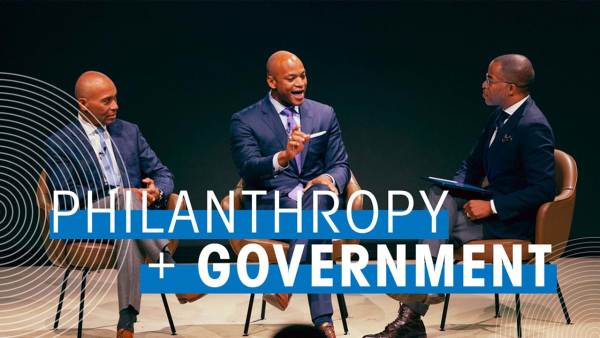
Why good government needs philanthropy featuring Deval Patrick and Wes Moore with Jonathan Capehart
Wes Moore, CEO of Robin Hood, and Deval Patrick, managing director of Bain Capital, see philanthropy working hand-in-hand with government in the fight for equality. Philanthropy can often provide the initial capital needed while government can take over and scale the solution.
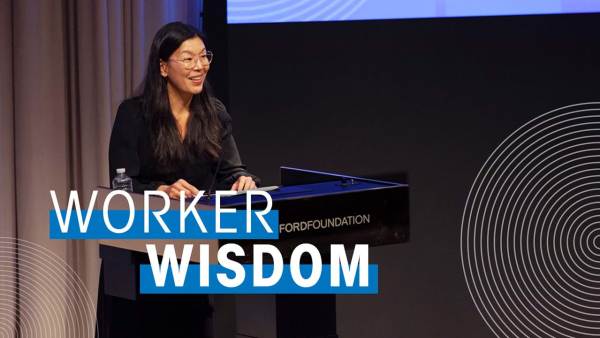
Bringing hidden labor to light featuring Ai-Jen Poo
Ai-jen Poo, executive director of the National Domestic Workers Alliance, says the sector of caregivers and domestic workers continues to grow. Building a future of work that works for all is centered on justice-based philanthropy and not a generosity model.
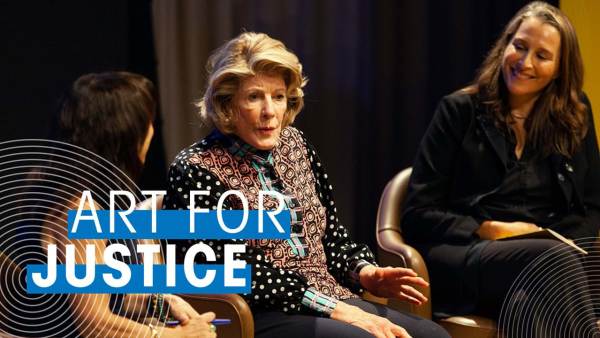
Art for Justice featuring Agnes Gund and Catherine Gund with Maria Hinojosa
The Art for Justice fund was created to help end mass incarceration. Founder Agnes Gund says philanthropy is about addressing issues like this. Catherine Gund believes art has an important part to play in the fight for racial justice and can help change the policies that led to mass incarceration.
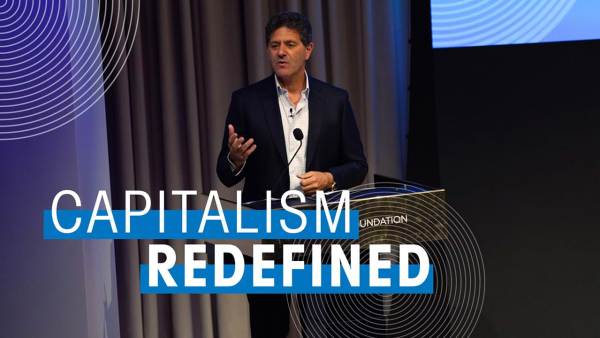
Capitalism redefined featuring Nick Hanauer
Entrepreneur Nick Hanauer asks us to reimagine the economy. He believes we need to change our beliefs about the economy to create a more just, more equitable society for all. By choosing better economic beliefs, we can change society for good.
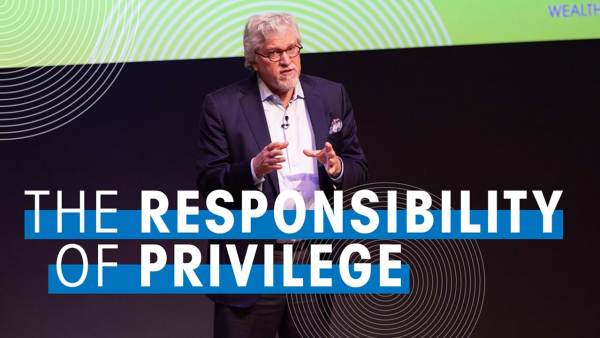
On using power and privilege for change featuring Jeff Raikes
Jeff Raikes, co-founder of the Raikes Foundation, says dismantling racism requires philanthropy to ditch its colorblind approach. People in power need to acknowledge that privilege is invisible to those who possess it. Privilege and power need to be transformed into a force for changing our society for the better.